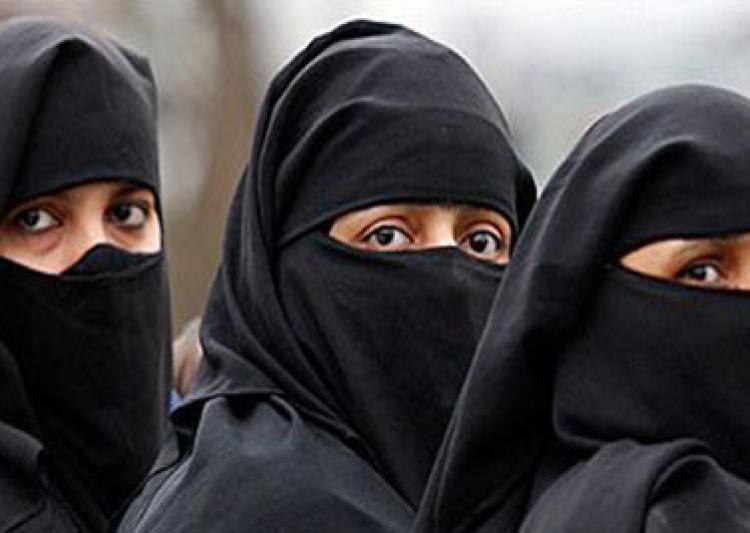A very brave stance by UKIP in calling for a ban on the burqa (Muslim veil) has triggered a debate on whether such a ban should be supported by the
British public.
A study in 2016, highlighted how the majority of people in the UK would favour a ban with a ration of in excess of 2:1 desiring a ban. Although
such stances are expected in members of political parties such as the Conservatives and UKIP, even members of more liberal political parties such as
Labour (48%) and the Liberal Democrat (42%) Party approved a ban on burka’s rather then opposed it (37% and 30% respectively). (click here)
Arguably many Muslims agree with the notion of a ban on the burqa which is a symbol of the second-class citizenship of the female gender in radical
Islam. Dr Taj Hargey who is Imam of the Muslim Education Centre of Oxford said in a statement:
“By banning the burka, Britain would belatedly follow the courageous lead of France, Belgium, Bulgaria, Morocco, Chad, Niger and other nations in outlawing this hideous tribal rag that has nothing to do with Islam, but only besmirches the Holy Qur’an.
“Instead of the liberal pandering to burgeoning Muslim extremism in the UK – which champions facial concealment as a religious requirement and ‘personal choice’ – the British public should be advised that there is no obligation for female facial coverings in Islam’s divine scripture.
“This nefarious Wahhabi-imported fad from Saudi Arabia, Afghanistan, Yemen, Pakistan and other backward places, derives not from Islam’s sacred text, but from the highly-suspect patriarchal sayings, hadith, of the Prophet Muhammad that were compiled some 300 years after his death.
“If the major political parties do not have the foresight or fortitude to tackle this toxic gateway ideology that reflects a virulent and militant shari’ah contagion that is gaining ground in this country, then Ukip should be saluted for doing so.”
The recent killing of 50 year old Fazal Abbas by women in burqas who returned to Pakistan after fleeing an allegation of blasphemy against Muhammed
13 years ago, highlights the security danger the garments pose. Three women clad in burqas concealed guns under their garments and planned to
each shoot Mr Abbas once, however during the attack only one shot was fired. The three women publicly named as Afshan Bibi, Razia Bibi and Amna Bibi,
have all been arrested. (click here)
The use of the burqa in terrorist attacks is a known phenomenon. But surprisingly after freedom fighting women in 2016 started to use the burqa to
conceal weapons when assassinating members of IS in Iraq, a ban of the burka ensued throughout Mosul. This humiliating U-turn by IS morality police
illustrated the expendable nature of their burqa policy suggesting it is not an Islamic necessity. (click here)
Wilson Chowdhry, Chairman of the British Pakistani Christian Association, said:
“Campaign groups will no doubt label UKIP as an islamophobic group, however the debate that their new policy has initiated is a very valid one.
“Despite wearing a sacred knife (Kirpaan), no Sikh has ever been recorded as misusing the knife for terrorism. The same cannot be said for the burqa which has a history of misuse. undisputedly the garment is considered more dangerous then the sikh knife though for all intents and purposes the Kirpaan is a weapon.
“In our desire to preserve civil liberties we cannot ignore the safety of people in Britain. The Westminster Terror Attack reminds us all that we are still a target for extremists who will use any means to strike terror in our communities.
“Moreover, the burqa is seen by many as a symbol of gender subjugation of women, often by Muslim groups too. For every Muslim that believes wearing the burka is a symbol of religious freedom, there is at least one that believes the opposite.
“Although the BPCA does not at this stage back a ban on the burqa, we by no means object to one either. We do believe that the use of a burqa in public areas has to be risk assessed and a common policy adopted that maintains security without causing societal polarisation and offence.
“To ensure an approach that is universally acceptable is in place, consultation on this important debate should include all sectors of society.”
